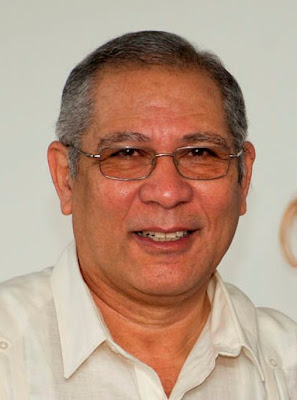50 ANIVERSARIO DEL ACTA DE LOS DERECHOS CIVILES EN EE.UU.. La verdad histórica sobre quiénes se opusieron en los EE.UU. a esa ley. Who Opposed the Civil Rights Act of 1964?
Who Opposed the Civil Rights Act of 1964?
I see that Senate Majority Leader Harry Reid took a swipe at Republicans this morning, comparing them to those who opposed the Civil Rights Act of 1964 for filibustering health reform legislation. It’s worth remembering that the longest filibuster of the 1964 act was conducted by a still-sitting senator, Robert C. Byrd, who personally spoke against the legislation for 14 hours and 13 minutes on June 9 & 10, 1964. Here’s an extract from my book, Wrong on Race: The Democratic Party’s Buried Past, which was published last year.
The enormous desire to memorialize the senseless murder of John F. Kennedy, plus Johnson’s determination to demonstrate his power and purge his own racist past by getting a substantive civil rights bill through the Senate, proved a formidable combination. The long filibuster of 1964 was only delaying the inevitable. That all the participants knew this only goes to show how deep their racism was. It’s one thing to engage in a filibuster if there is even a glimmer of hope that something might be salvaged as a result. But serious commitment is required to take such action when one knows that ultimate failure is the only conceivable outcome. This fact should be kept in mind when thinking about people like Senator Robert C. Byrd, Democrat of West Virginia, whose individual filibuster of the 1964 civil rights bill is the second longest in history, taking up eighty-six pages of fine print in the Congressional Record. Only a true believer would ever undertake such a futile effort.
Even so, one final element was essential to passage of the civil rights bill—the strong support of Republicans. Although Democrats had a historically large majority in the House of Representatives with 259 members to 176 Republicans, almost as many Republicans voted for the civil rights bill as Democrats. The final vote was 290 for the bill and 130 against. Of the “yea” votes, 152 were Democrats and 138 were Republicans. Of the “nay” votes, three-fourths were Democrats. In short, the bill could not have passed without Republican support. As Time Magazine observed, “In one of the most lopsidedly Democratic Houses since the days of F.D.R., Republicans were vital to the passage of a bill for which the Democratic administration means to take full political credit this year.”
A similar story is told in the Senate. On the critical vote to end the filibuster by Southern Democrats, 71 senators voted to invoke cloture. With 67 votes needed, 44 Democrats and 27 Republicans joined together to bring the bill to a final vote. Of those voting “nay,” 80 percent were Democrats, including Robert C. Byrd and former Vice President Al Gore’s father, who was then a senator from Tennessee. Again, it is clear that the civil rights bill would have failed without Republican votes. Close observers of the Senate deliberations recognized that the Republican leader, Senator Everett McKinley Dirksen of Illinois, had done yeoman work in responding to the objections of individual Republicans and holding almost all of them together in support of the bill. “More than any other single individual,” the New York Times acknowledged, “he was responsible for getting the civil rights bill through the Senate.”
***********
Tomado de http://en.wikipedia.org/















0 Comments:
Publicar un comentario
<< Home